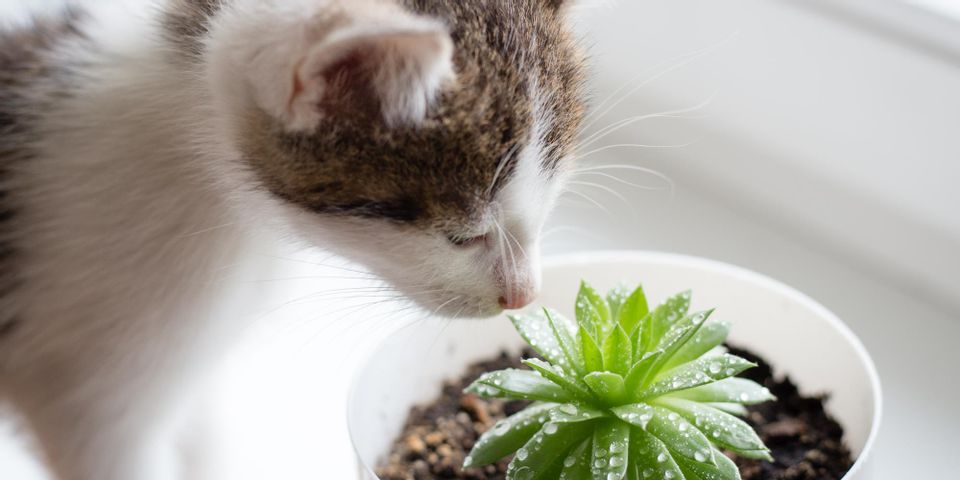Why You Shouldn't Let Cats Eat Houseplants

Cats are an amazing addition to families and homes. However, if you enjoy adding greenery around the living space, there are a few houseplants that are dangerous to your feline if they eat them. To ensure you provide adequate pet care, you should understand why cats try to eat the plants and which ones are dangerous. Below is more information about this so that you can protect your furry friend and decorate appropriately.
Why Do Cats Eat Houseplants?
While cats are carnivorous and prefer a meat-based diet, they will sometimes seek out vegetation. One explanation for this is wild cats would explore different leaves and stems to receive extra nutrients. This can carry over to domesticated, indoor cats as an instinct. However, another reason may be because your feline is curious about the texture and taste of the greenery.
 For example, cats may find the feel of the plant soothing or be drawn to the movement of the leaves, triggering their instinct to pounce. While certain cats chew out of boredom, others will know that eating plants may lead to vomiting. Similar to when dogs eat grass, a cat may eat houseplants to relieve discomfort if they have an upset stomach.
For example, cats may find the feel of the plant soothing or be drawn to the movement of the leaves, triggering their instinct to pounce. While certain cats chew out of boredom, others will know that eating plants may lead to vomiting. Similar to when dogs eat grass, a cat may eat houseplants to relieve discomfort if they have an upset stomach.
Which Plants Are Bad for Cats?
Knowing which plants are dangerous and which ones will not affect your cat allows you to provide proper pet care and keep your home safe. For example, lilies are some of the most dangerous plants to have near felines. From tiger and day varieties to Easter and red lilies, small bites can lead to acute kidney failure. Even the water in the vase is toxic.
Corn plants and aloe vera are also common houseplants, but they can cause vomiting, appetite loss, and difficulty breathing. The asparagus fern is a low maintenance houseplant, but prolonged exposure causes skin irritation. If your cat ingests the berries, they will experience an upset stomach and vomiting. If you have pothos, or “devil’s ivy,” symptoms that your cat has eaten some of it include burning mouth, tongue, and lips, as well as trouble breathing and excessive drooling.
If you want plants in your house, choose safer options like the spider plant, bamboo palm, or Christmas cactus. Even though too much can still upset their stomach, they are less likely to experience a severe illness.
If you suspect your cat is sick from eating houseplants, contact Dykes Veterinary Clinic. Located in Foley, AL, and serving Baldwin County since 1989, the pet care facility offers pet vaccines, blood tests, and more. They also provide spay and neuter services and pet boarding. Call (251) 943-3211 to schedule an appointment for your pet. Visit them online for more information about their services.
About the Business


